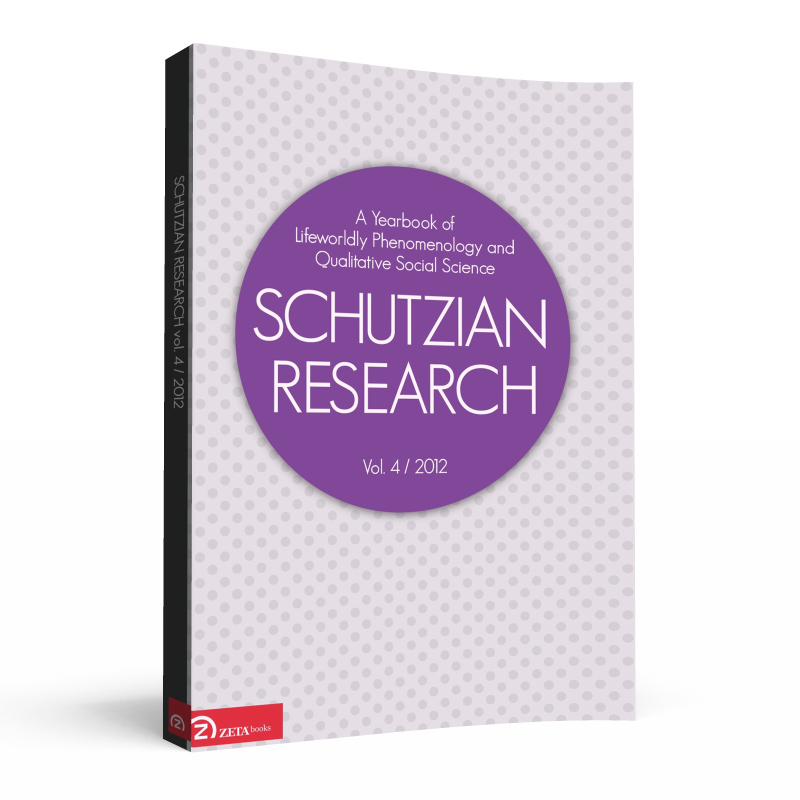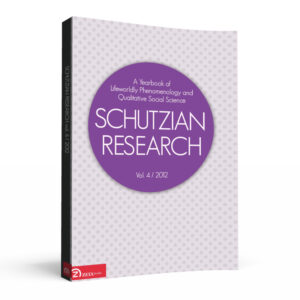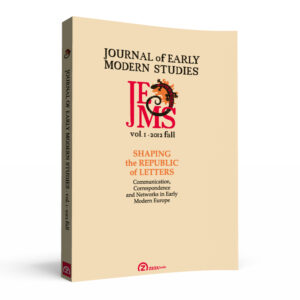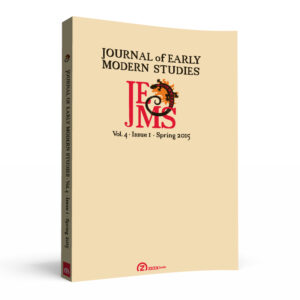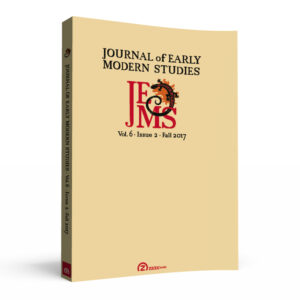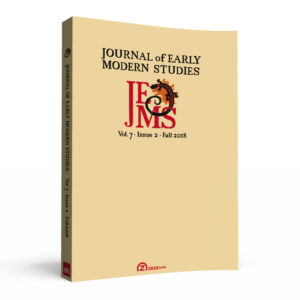Many of the papers in this, the fourth volume of Schutzian Research, were presented at Founding Meeting of The International Alfred Schutz Circle for Phenomenology and Interpretive Social Science held at The New School for Social Research of New York in May 2012. Lester Embree’s keynote address at the meeting traces the history of Schutz scholarship, and this volume is the latest contribution to that history. The papers have been contributed by scholars from Argentina, Brazil, France, Germany, Japan, and the United States.
Table of Contents
Michael D. BARBER: Introduction
Lester EMBREE: It’s about Time! A Sometimes Personal Narrative of Schutz Scholarship
- Abstract: With some remarks on what I have personally contributed, this essay sketches the origins of the posthumous effort by which Schutz’s thought, which could have been forgotten, has become well-known internationally through the dedicated work in the United States, Germany, and Japan of a modest number of named students and followers in successive generations as well as his widow Ilse. How his thought connects with phenomenology, sociology, social psychology, and the theory of the cultural sciences is touched on. Besides references to the two biographies and the annual, Schutzian Research, counts of editions of translations into a dozen languages and then lists of the Schutz Memorial Lectures, the archives in Germany, Japan, and the United States, the Werkausgabe, and the many conferences focused on Schutz are offered. This is to make the case that the International Alfred Schutz Circle for Phenomenology and Interpretive Social Science is long overdue.
George PSATHAS: On Garfinkel and Schutz: Contacts and Influence
- Abstract: This paper considers the relation between Harold Garfinkel and Alfred Schutz. Reference will be made to their correspondence as well as to some of Garfinkel’s writing. Garfinkel, who was a graduate student at Harvard at the time, first met Schutz at the recommendation of Aron Gurwitsch. Their meeting led to further exchanges including papers that Garfinkel sent to Schutz. When his book, titled Studies in Ethnomethodology, appeared in 1967 he specifically cited Schutz as one to whom he was “heavily … indebted” in his work. In later writings he no longer made such citations and moved away from his earlier position.
Andreas GÖTTLICH: Imposed Relevance: On the Sociological Use of a Phenomenological Concept
- Abstract: The present paper discusses the concept of imposed relevance as developed by Alfred Schutz. The discussion acts on the assumption that within his writings there are two different usages of the concept: a phenomenological one and a sociological one. The argument states that both usages may not be confused—a failure which might be induced by the fact that Schutz himself never dwelled on their correlation. This being said, this paper presents some basic considerations which try to utilize phenomenological reflections for sociological analyses, keeping in mind that the difference between them may not be blurred.
Daniela Griselda LÓPEZ: The Oblivion of the Life-World: The Correspondence of Alfred Schutz and Talcott Parsons
- Abstract: At the beginning of the 1940s in the United States, an exchange of correspondence took place between two of the great thinkers in Sociology, Alfred Schutz and Talcott Parsons. This correspondence dealt with matters which many deemed to be “the greatest central problems in the social sciences.” The reading of these letters leads one to assume that the focus of both authors was on answering how sociology could be appropriately based on the revision of Max Weber’s classical contribution. However, this interpretation has served as the basis to affirm that Schutz and Parsons revisited Weber’s project from opposing sides by detaching the elements from its main corpus. This leads to not only opposite but antithetical points of view. From this perspective, Schutz is labeled as a subjectivist whereas Parsons is labeled as an objectivist. Strikingly, even Schutz himself dismisses the idea of presenting both authors as antagonists. What’s more, he underlines his purpose as that of complementarity. Here arises an obvious question. If Schutz from the very beginning underlined the idea of complementarity, why then does contemporary sociological theory present Schutz and Parsons’ contributions as antithetical? Taking this question as the starting point, our enquiry allows us to expose the existence of an interpretive scheme in Sociological Theory that introduces the dualistic dilemma in the analysis of Schutz and Parsons’ epistolary exchange. We will analyze this interpretive scheme’s main features by using the hermeneutical analysis. Then, in order to critically revisit the debate, our research unveils the prejudices involved in this interpretive tradition, highlighting the misunderstandings regarding the dualistic interpretation of Schutz’s work and his links with Parsons. By doing this it makes clear the way in which these interpretations have veiled the original sense of Schutz’s epistolary exchange with Parsons. Thus our paper, being directly opposed to the dominant reading, aims to propose that the debate shouldn’t be seen as a confrontation between subjectivism and objectivism, but as part of Schutz’s project to go beyond the dualism, starting with a phenomenological approach that recovers the life-world as the forgotten foundation of the social sciences.
Ken’ichi KAWANO: Reformulation of “How is Society Possible?”
- Abstract: “How is society possible?” posed by Georg Simmel has been one of the fundamental problems in sociology. Although various attempts have been made to solve it, I conceive that “society” in the problem remains to be articulated. Simmel provides us with two concepts of society-“society as interaction” and “society as unity”-to be distinguished. Some research traditions in sociology have been concerned with the former, others have dealt with the latter. On the other hand, Simmel maintains continuity between them. In this sense, his concept of “society” has “ambiguous” characteristics. It seems to me that in the ambiguous style Simmel had intended to reveal the secret of “society,” but in the end could not have got to it. In my opinion, in order to unveil the secret, it is required that, drawing on Schutzian phenomenologically oriented sociology, sociologists or social scientists make a differentiation between the society which is realized or brought about by partners with no need of an observer, “the social,” and the society which an observer recognizes by use of the concept. In this article, from a Schutzian point of view, I wish to articulate “society” and to indicate four phases of “society.” These investigations lead to a reformulation of the problem of “how is society possible?” and sociology (or the social sciences) which makes possible the deeper understanding of society.
Denisa BUTNARU: Crossing Cultures of Knowledge: Alfred Schütz’s Heritage and the Contemporary Social Science of the Individual in France
- Abstract: The aim of the present article is to draw attention on a historical development in the French sociological tradition. Being a heritage of the German intellectual context, the tradition of the comprehensive sociology was not among the main trends in France. Furthermore, the phenomenological tradition in social theory mostly associated with the work of Alfred Schutz was also a side interest until the 1980s. From this decade on, a new paradigm becomes gradually institutionalized, a paradigm which gathers different intellectual and theoretical positions and which partly rehabilitates the comprehensive and the phenomenological heritage. My intention is to analyze how this new orientation in the French social science used the comprehensive legacy in order to propose a new culture of knowledge.
Michael BARBER: The Cartesian Residue in Intersubjectivity and Child Development
- Abstract: This paper argues that Husserl’s account of adult recognition of another allows for immediate, noninferential, analogical access to the other, though one does not experience the other’s experience as s/he does. The passive-associative processes at work in adult recognition of another make possible infant syncretic sociability and play a role in constituting the infant’s self prior to reflection. The reflective perspective of the psychologist and philosopher discovers that such infant experiences, though at first seeming indistinguishable from their parents’ experience, belong to one’s own stream of consciousness and constitute a non-eliminable Cartesian residue and an inescapable solitude of identity. Finally new research in joint attention reveals that the infant self is constituted not only by passive experience but also by active movements evident in the infant’s attempt to shape the direction of adults in joint attention, however this may fall short of high-level reflection.
Hermílio SANTOS: Action and Relevance: Making Sense of Subjective Interpretations in Biographical Narratives
- Abstract: This paper analyses biographical narratives as a possibility of getting access on how individuals interpret their life-world, that is, the subjective interpretation in biographies of actors on their social context. Here biography is understood as the description made by the individual himself. It is of processes and experiences that extended through the course of life, that is, written or oral presentation of the history of life. In this sense, biographies and biographical trajectories are not purely individual phenomena, but social ones. The biographical narrative offers important elements for the analysis not only on the narrator’s life, but especially on the connections between the individual and his group or community, considering however that any narrative is an interpretation based on a specific biographical situation. In this sense, the access to the experiences accumulated and consolidated in their biographies permits the analysis of the subjective interpretation of the actors.
Lester EMBREE: Two Concepts of Type in the Work of Alfred Schutz
- Abstract: Schutz not only adapted Max Weber’s “ideal types” but also Edmund Husserl’s prepredicative “types,” which must have been “empirical types,” in his work. With care, these terms can be kept distinct. The former term refers to concepts used in common-sense thinking as well as cultural science, while the latter refers to vague material universals or eidē. This essay studies how “type” is used in these two different ways by Schutz after he had read Husserl’s Erfahrung und Urteil by 1941.
Tetsuya SAKAKIBARA: Phenomenological Research of Nursing and Its Method
- Abstract: The aim of this paper is to clarify what “phenomenological” means in the phenomenological researches of nursing and what “method” is or should be adopted in phenomenological researches of nursing. The essay first defines a traditional classification of the phenomenological researches of nursing by Cohen and Omery, and then gives a new attempt to classify the phenomenological approaches in the theories of nursing. On this basis, the essay reviews some representative “phenomenological” researches of nursing today and addresses critical comments to them. Finally, the essay will make clear what “phenomenological” should mean in the phenomenological research of nursing and what kind of “method” should be adopted in those researches.
ISSN: 2067-0621 (paperback)
ISSN: 2248-1907 (electronic)
ISSN: 2248-1907 (electronic)
ISBN: 978-606-8266-25-1 (paperback)
ISBN: 978-606-8266-26-8 (ebook)
ISBN: 978-606-8266-26-8 (ebook)

